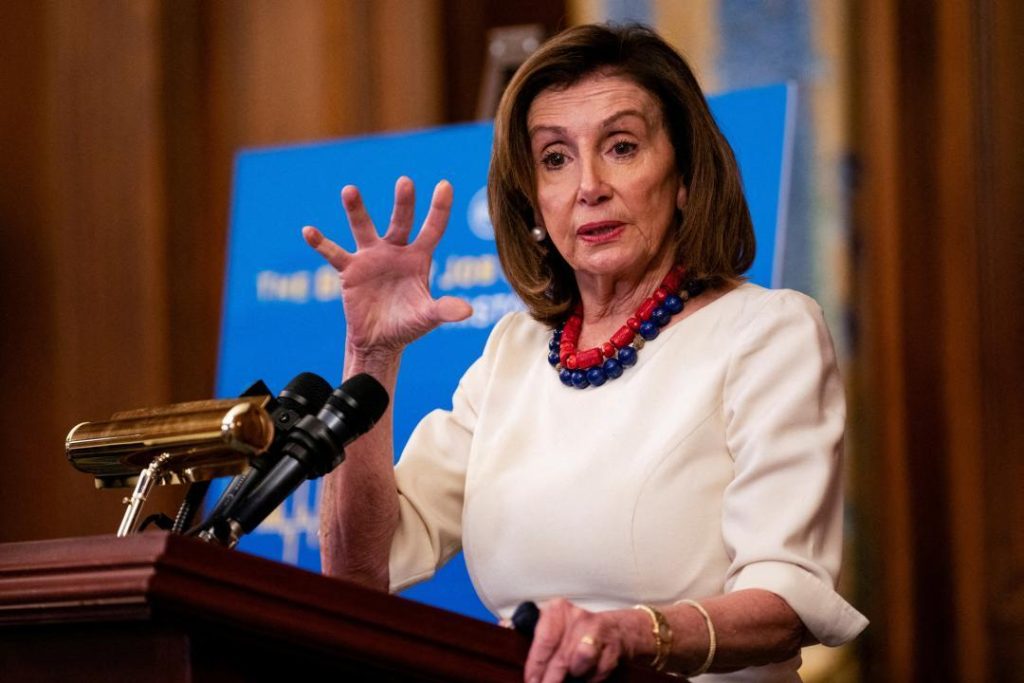
What is PELOSI Act & why is it named after former US Speaker Nancy Pelosi?
The Preventing Elected Leaders from Owning Securities and Investments (PELOSI) Act, reintroduced by US Senator Josh Hawley, aims to address a long-standing concern in the United States: the potential for lawmakers to use their positions of power to benefit financially from their investments. The act proposes to prohibit lawmakers and their spouses from holding or dealing in stocks while holding office. However, they would be allowed to invest in mutual funds (MFs), exchange-traded funds (ETFs), and Treasury bonds.
The PELOSI Act has sparked a heated debate, with some arguing that it is a necessary step to ensure transparency and accountability in government, while others see it as an overreach into the personal lives of elected officials.
So, why is the act named after former US Speaker Nancy Pelosi? It is because Pelosi, a Democrat from California, has been criticized for her significant stock market gains during her term as Speaker of the House of Representatives from 2007 to 2011. At the time, she and her husband, Paul Pelosi, owned stocks in companies that were affected by policies and regulations being debated in Congress.
Pelosi’s investments, which were disclosed in her financial reports, included shares in companies such as Visa, Mastercard, and Google. These investments were made through a blind trust, which meant that Pelosi did not have direct control over the investments, but critics still argued that she had a conflict of interest.
The PELOSI Act is not a new concept. In fact, it has been proposed several times in the past, including in 2012, when Representative Louise Slaughter, a Democrat from New York, introduced a similar bill. However, it has never gained traction.
Senator Hawley, a Republican from Missouri, reintroduced the bill in February 2022, citing concerns about the potential for lawmakers to use their positions to benefit financially from their investments. “The American people deserve to know that their elected officials are working for them, not lining their own pockets,” Hawley said in a statement.
Under the PELOSI Act, lawmakers would be prohibited from buying or selling individual stocks, including those of companies being regulated by Congress. They would also be banned from owning or dealing in cryptocurrencies, commodities, and other investments that are not allowed in their retirement accounts.
However, lawmakers would still be allowed to invest in MFs, ETFs, and Treasury bonds, which are considered to be more transparent and less susceptible to conflicts of interest. These investments would be subject to the same disclosure requirements as lawmakers’ other financial investments, ensuring that the public can track their activities.
The act has been met with support from some lawmakers, including Representative Alexandria Ocasio-Cortez, a Democrat from New York, who has been a vocal critic of the influence of money in politics. “The PELOSI Act is a step in the right direction towards ensuring that our elected officials are working for the people, not for their own financial gain,” Ocasio-Cortez said in a statement.
However, others have raised concerns about the constitutionality of the act, arguing that it would infringe on lawmakers’ First Amendment rights to free speech and association. They also argue that the act would create unnecessary restrictions on lawmakers’ ability to invest their money.
The debate surrounding the PELOSI Act highlights the ongoing tension between transparency and accountability in government, on the one hand, and the personal freedoms and rights of elected officials, on the other. While the act may not be a panacea for the problems of money in politics, it is a step towards ensuring that lawmakers are held accountable for their actions and that the public can trust that their elected officials are working for the greater good.



